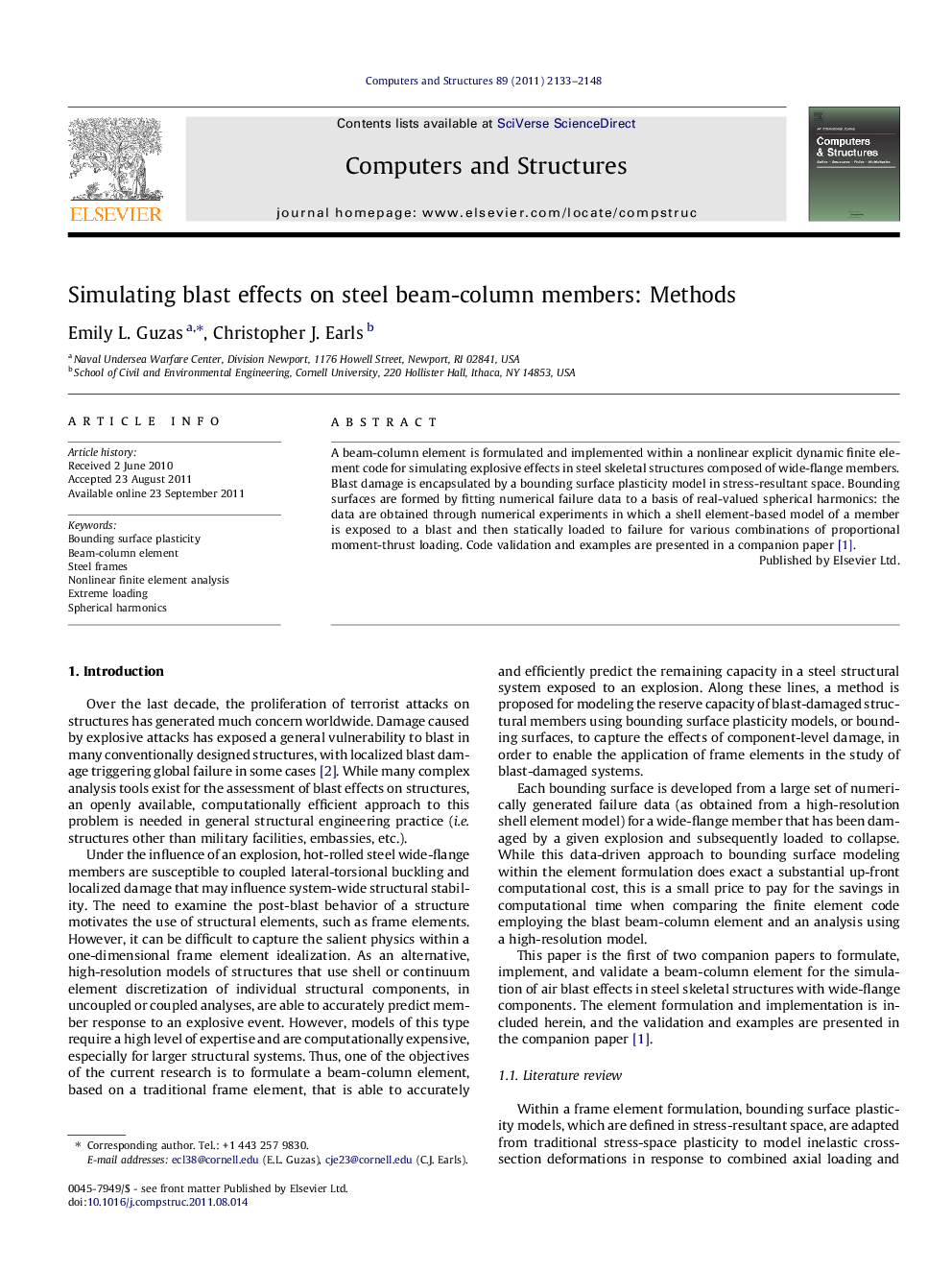| Article ID | Journal | Published Year | Pages | File Type |
|---|---|---|---|---|
| 510189 | Computers & Structures | 2011 | 16 Pages |
A beam-column element is formulated and implemented within a nonlinear explicit dynamic finite element code for simulating explosive effects in steel skeletal structures composed of wide-flange members. Blast damage is encapsulated by a bounding surface plasticity model in stress-resultant space. Bounding surfaces are formed by fitting numerical failure data to a basis of real-valued spherical harmonics: the data are obtained through numerical experiments in which a shell element-based model of a member is exposed to a blast and then statically loaded to failure for various combinations of proportional moment-thrust loading. Code validation and examples are presented in a companion paper [1].
► We formulate/implement a beam-column element for blast simulation of steel frames. ► We capture blast damage in steel wide-flange members using bounding surfaces. ► Bounding surfaces are made by fitting numerical failure data to spherical harmonics. ► Failure data is from simulations of members hit by blast, then loaded to collapse.
